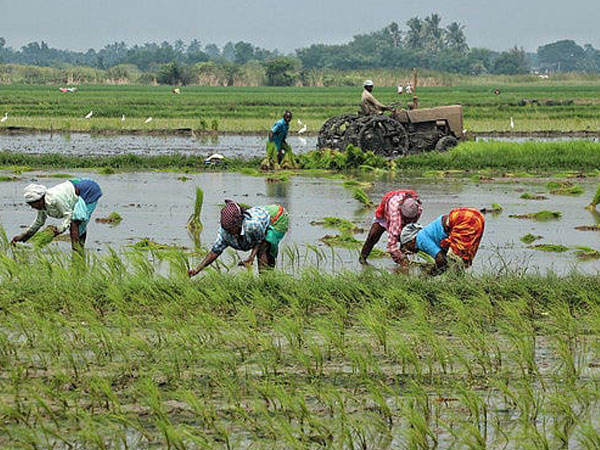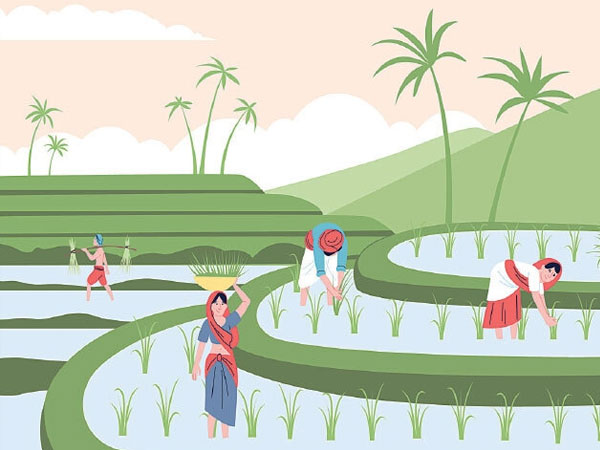 CHENNAI: Nearly three weeks after three central teams inspected rain-soaked paddy fields across Tamil Nadu, the union government has rejected the state’s request to raise the permissible moisture content in paddy for public procurement from 17% to 22%. The centre, however, has increased the minimum limit allowed for buying discoloured, broken, and sprouted paddy grains from 5% to 7%.
CHENNAI: Nearly three weeks after three central teams inspected rain-soaked paddy fields across Tamil Nadu, the union government has rejected the state’s request to raise the permissible moisture content in paddy for public procurement from 17% to 22%. The centre, however, has increased the minimum limit allowed for buying discoloured, broken, and sprouted paddy grains from 5% to 7%.
The decision will force farmers to incur additional labour cost in drying paddy crops with 19%-20% moisture content to reach the approved limit of 17% amid persisting wet weather across delta and other districts. Farmers without proper drying infrastructure may be forced to sell their produce at lower rates to private traders. It may be noted that the union government had earlier granted relaxation in moisture norms of up to 19%-20% in 2020-21 and 2022-23 due to high humidity and rainfall.
In a recent communication to the Tamil Nadu Civil Supplies Corporation (TNCSC), which procures paddy under the central pool on behalf of the Food Corporation of India (FCI), the Union Ministry of Consumer Affairs, Food and Public Distribution has said that the permissible moisture level for paddy for Kharif Marketing Season (KMS) 2025-26 will remain at 17%.
While the centre has increased the allowable limit for discoloured, broken, and sprouted grains to 7%, it has also rejected TN’s request to raise the limit for immature, shrunken, and shrivelled grains from 3% to 5%.
A Annadurai, Managing Director of TNCSC, said the Kharif Marketing Season for 2025-26 will end on October 31 next year. “Farmers will now have to dry the paddy themselves to bring moisture down to 17% until next October,” an official added.
The official also noted that TNCSC does not have the exact data on the quantity of paddy with moisture levels between 18% and 22%. “Many farmers are drying their paddy to meet the 17% requirement at Direct Procurement Centres (DPCs),” he said.
Following the heavy rains, the state government had written to the centre on October 19 seeking an increase in the permissible moisture levels. Three central teams then carried out field assessments across Tamil Nadu from October 25 to 30. Subsequently, paddy samples were sent to the Hyderabad-based Indian Institute of Rice Research (IIRR), under the Indian Council of Agricultural Research (ICAR), for recommendations on possible moisture relaxation.














© Copyright 2025 The SSResource Media.
All rights reserved.